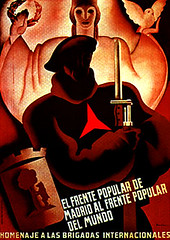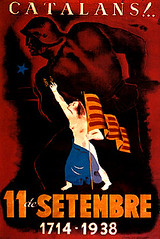The Mark
People who read of con touches in the newspaper are often wont to remark: "That bird must be stupid to fall for a game like that. Why, anybody should know better than to do what he did...." In other words, there is a widespread feeling among legitimate folk that anyone who is the victim of a confidence game is a numbskull.
But it should not be assumed that the victims of confidence games are all blockheads. Very much to the contrary, the higher a mark's intelligence, the quicker he sees through the deal directly to his own advantage. To expect a mark to enter into a con game, take the bait, and then, by sheer reason, analyze the situation and see it as a swindle, is simply asking too much. The mark is thrown into an unreal world which very closely resembles real life; like the spectator regarding life groups in a museum of natural history, he cannot tell where the real scene merges into the background. Hence, it should be no reflection upon a man's intelligence to be swindled. In fact, highly intelligent marks, even though they may tax the ingenuity of the con men, respond best to the proper type of play. They see through the deal which is presented, analyze it, and strike the lure like a flash; most con men feel that it is sport of a high order to play them successfully to the gaff. It is not intelligence but integrity which determines whether or not a man is a good mark.
--David W. Maurer, The Big Con, Ch. 4
But it should not be assumed that the victims of confidence games are all blockheads. Very much to the contrary, the higher a mark's intelligence, the quicker he sees through the deal directly to his own advantage. To expect a mark to enter into a con game, take the bait, and then, by sheer reason, analyze the situation and see it as a swindle, is simply asking too much. The mark is thrown into an unreal world which very closely resembles real life; like the spectator regarding life groups in a museum of natural history, he cannot tell where the real scene merges into the background. Hence, it should be no reflection upon a man's intelligence to be swindled. In fact, highly intelligent marks, even though they may tax the ingenuity of the con men, respond best to the proper type of play. They see through the deal which is presented, analyze it, and strike the lure like a flash; most con men feel that it is sport of a high order to play them successfully to the gaff. It is not intelligence but integrity which determines whether or not a man is a good mark.
--David W. Maurer, The Big Con, Ch. 4


1 Comments:
Great post -- disturbing and brilliant in the way it pinpoints how our political situation (in that "unreal world which very closely resembles real life") comes to corrupt the basic structure of journalism. Instant Cartelian classic.
The combination of Miller and Woodward must have profound meaning for what's going on in journalism today. Not sure what to make of it, but you get the sense that there's more to be unraveled and thought about. I notice that Michael Massing has another piece out in the New York Review of Books on some of these questions.
Post a Comment
<< Home